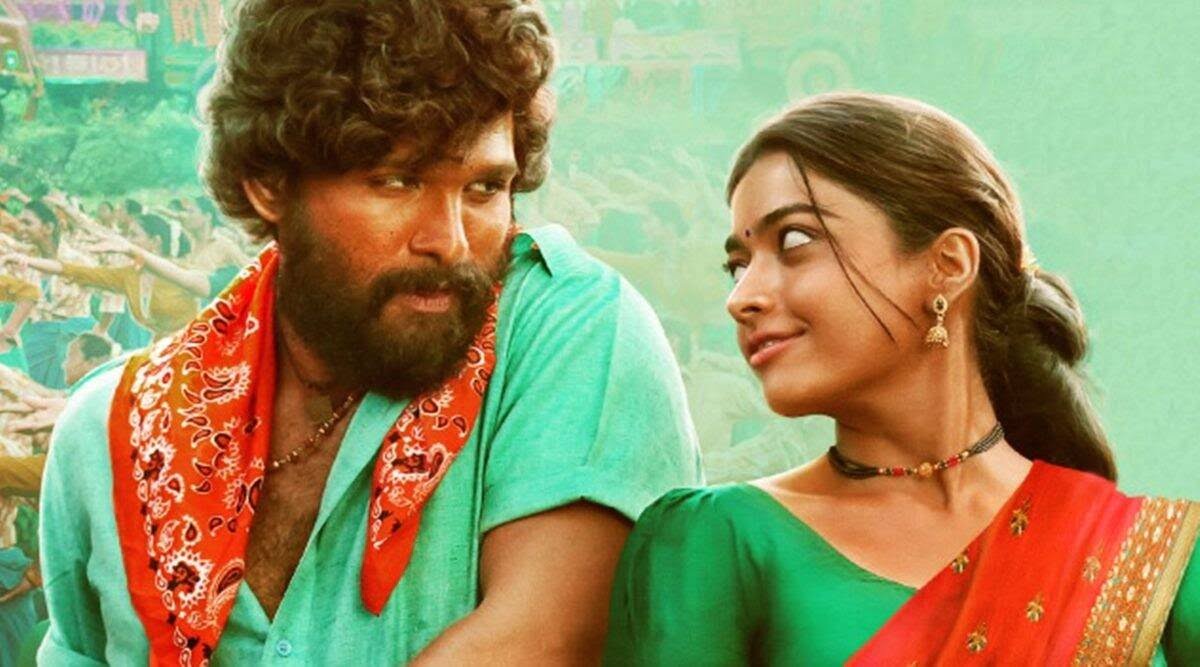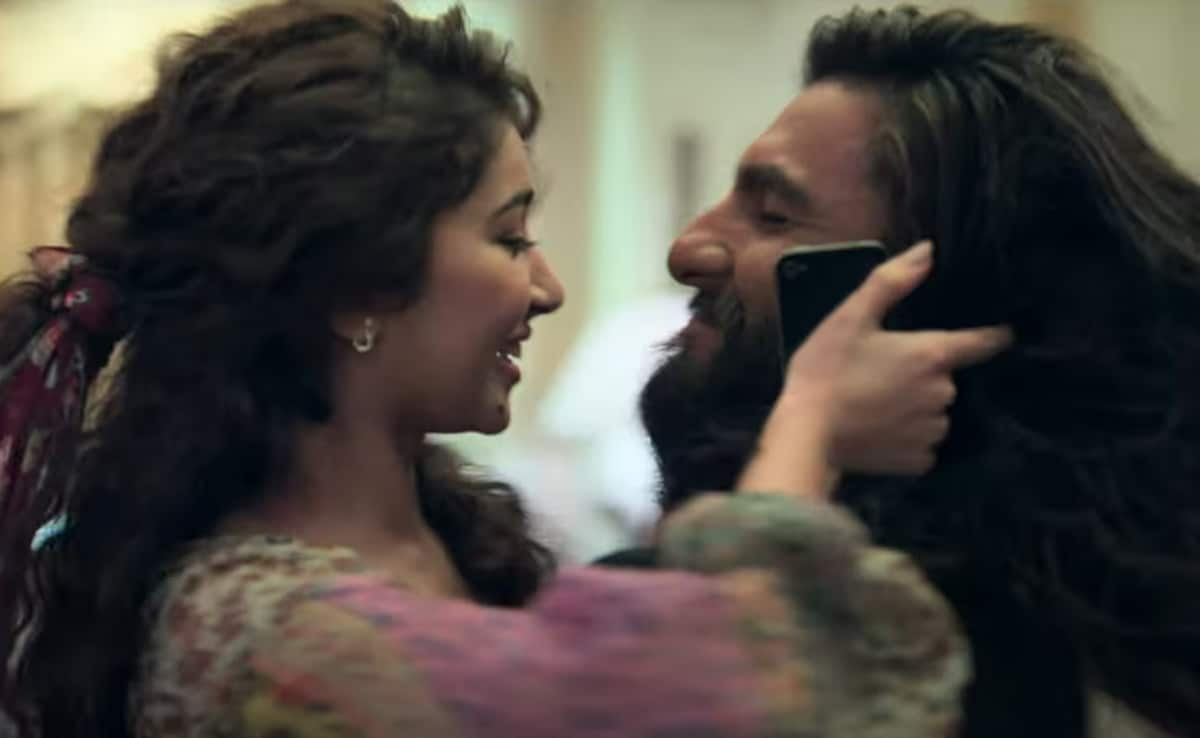The recently released Telugu movie Pushpa: The Rise brings forward some brute on-ground realities but also is an urgent call to critically deal with how society accepts the superiority of a certain type of masculinity as the deciding quality of a conventional hero and which further justifies the secondary and objectified position of the marginalised communities and women in general.
Herohood in Pushpa glorifies hegemonic, heterosexual masculine behaviour and emasculates every other behaviour which shows deviation from it.
As classist as it could be, the movie begins with the protagonist Pushpa Raj, (played by Allu Arjun) negotiating with his landlord. The landlord asks Pushpa to either become a slave to him or leave the job. Pushpa chooses to do the latter. This signifies the hierarchy of labour as well as of the dignity accorded to labourers that exist in our society where the typical physical labour is considered less worthy or lower in status and the labourers engaged in doing it are considered to be inferior, who can’t own respect. This is also owing to the caste-based hierarchical oppressive structures that are still incumbent in our society.
Meanwhile, the landlords with their caste-based privileges and upper-class status unilaterally demand unconditional respect, service and servitude from those lower in the caste hierarchy. Throughout the movie, the hero struggles as he refuses to bow down and tries to earn respect by earning money, regardless of means. Every individual has the right, as enshrined in our Constitution, to lead a life with dignity. However, this still remains an unrealised dream for many of the marginalised communities of our nation, especially for the people who are systematically relegated to the margins by the virtue of their class, caste, gender, place of birth, type of work, etc.
Also read: Chandigarh Kare Aashiqui: A Film That Normalises What It Attempts To Critique
Recipe For Being A Hero
However, Pushpa is problematic on so many other levels. A hero is touted as one who can’t lose. Be it fighting with 50 other men or plotting against enemies, he has to ultimately win. His saviour complex needs a massage every now and then. He needs to save the woman (damsel in distress) from getting exploited by the enemies. He would never listen to his mother or take her advice seriously but projects extreme love for her by taking revenge on her behalf when she did not even ask for a retaliation in the first place.
He needs to be inhumanly strong physically, not flinching even when being beaten badly and fighting back against the baddies. All this, more or less, becomes the recipe for being an ultimate hero over the screen. With more conversations around the impact of art on real life, we are now more cognisant of the adverse affects such picturisation could have on the mental health of the people watching it. In real life, these antics set unachievable goals for men and make them feel inferior for not being able to showcase such machoism. There is this superiority complex attached to the image of a hero, as someone undefeatable, someone who’s always correct, whose plans never fail and who has to win ultimately, be it a fight, a deal or a woman.
Pushpa falters here, big time.
The Patriarchal Necessity Of Having A Father’s Name
Our society has been slowly moving towards recognising the mother’s name as a legitimate identification for children. The Madras HC in this respect ruled that there is no legal obligation on the part of a mother to disclose the name of the father at the time of registering her child’s birth. Again, while working on the suggestion made by the Women and Child Development Minister Maneka Gandhi, the University Grants Commission (UGC) announced that it will make the father’s name optional on the degree.
However, Pushpa can be seen pushing these efforts backward. From its beginning to the end, the hero and his mother are denied respect and resources for not having a legitimate name of a man attached to theirs. From denying his admission in school to breaking his marriage, the worth of having a man’s name attached has been glorified and has been taken as a token for security. The movie could have taken a subversive and progressive turn by making the hero own and uphold his mother’s name, thus questioning the need to have the father’s name suffixed to theirs. But instead, Pushpa is seen fuming with rage whenever the question of his father came and his mother would be shown weeping with shame.
From its beginning to the end, the hero and his mother are denied respect and resources for not having a legitimate name of a man attached to theirs. From denying his admission in school to breaking his marriage, the worth of having a man’s name attached has been glorified and has been taken as a token for security. The movie could have taken a subversive and progressive turn by making the hero own and uphold his mother’s name, thus questioning the need to have the father’s name suffixed to theirs. But instead, Pushpa is seen fuming with rage whenever the question of his father came and his mother would be shown weeping with shame.
Reserving The ‘Gift Of Virginity’ For The Husband And Others Notions Of Purity
Srivalli, played by Rashmika Mandanna, is shown as someone reserving her first kiss (and thus, by extension, the society-mandated construct of her virginity) for whoever becomes her husband. This can be taken as re-enforcing the pure-impure dichotomy made for controlling the agencies and autonomy of women, wherein any hint of exercising her sexuality can make her character impure.
On the other hand, one of the landlords can be seeing forcefully sleeping with women who are shown as belonging to the marginalised class and everyone around can be seen taking this very normally. Sparing some sympathy for the victims, who are asked to move on with their ‘normal lives’, no one even blinks an eyelid at the plight of the women.
In one such attempt, when Srivalli is made the target, the hero comes to her rescue. This instance goes on to validate the masculinity that brutally fights and takes revenge while calling the masculinity that normalises sleeeping with other women as immoral and thus, not a proper display of mardangi.
Thus, Pushpa is a work of art that is heavily influenced and goes on to normalise patriarchal structures. Throughout the film, women, be it the protagonist’s mother or the heroine herself, can be seen making meaning of their lives from the actions of the men around them. The movie did show at some instances the potential to showcase the collective power of the marginalised labour class if they were to unite to fight oppression, but this aspect remains unutilized and all the attention focuses on the hero and his individual fights.
Anjali Chauhan is pursuing a master’s in Political Science at the University of Delhi. She likes exploring the world through the pages of her books and hitting misogyny through the ink of her pen. Political in instinct, she takes a keen interest in political theory and the politics in India. You can find her on Instagram.
Featured image source: naasongs.com





Pushpa I hate tears
So you want a completely different story and a completely different movie all together.
Interesting view. I agree with the masculinity angle but not the surname.
The surname thing is essentially to depict how he belongs to a lower caste/class background. Even when some people are okay without his surname, the society keeps dragging it and insulting him for it.
I agree, they could made him use his mother’s surname but word travels fast in small towns and would be ridiculed regardless. More than that, there is the aspect of him being a child of a mistress and hence, “illegitimate”.
The surname-caste angle is further exemplified in the scenes with Fahad where the latter boasts about his “brand”, an euphemism for his caste. The Hero, retorts at the end that unlike him, he did not have any social or economic privilege and proclaims his “brand”.
I agree, with the view of the patriarchal and hyper-masculine nature of the film but there are other progressive aspects to it and isn’t as problematic as it is made out to be.
There is also the fact, that North Indian people chastise South Indian films for sexism while conveniently over-looking their own films. This could be seen in the whole Kabir Singh fiasco. And instead of what should be a healthy discourse turns into a North vs South identity politics.